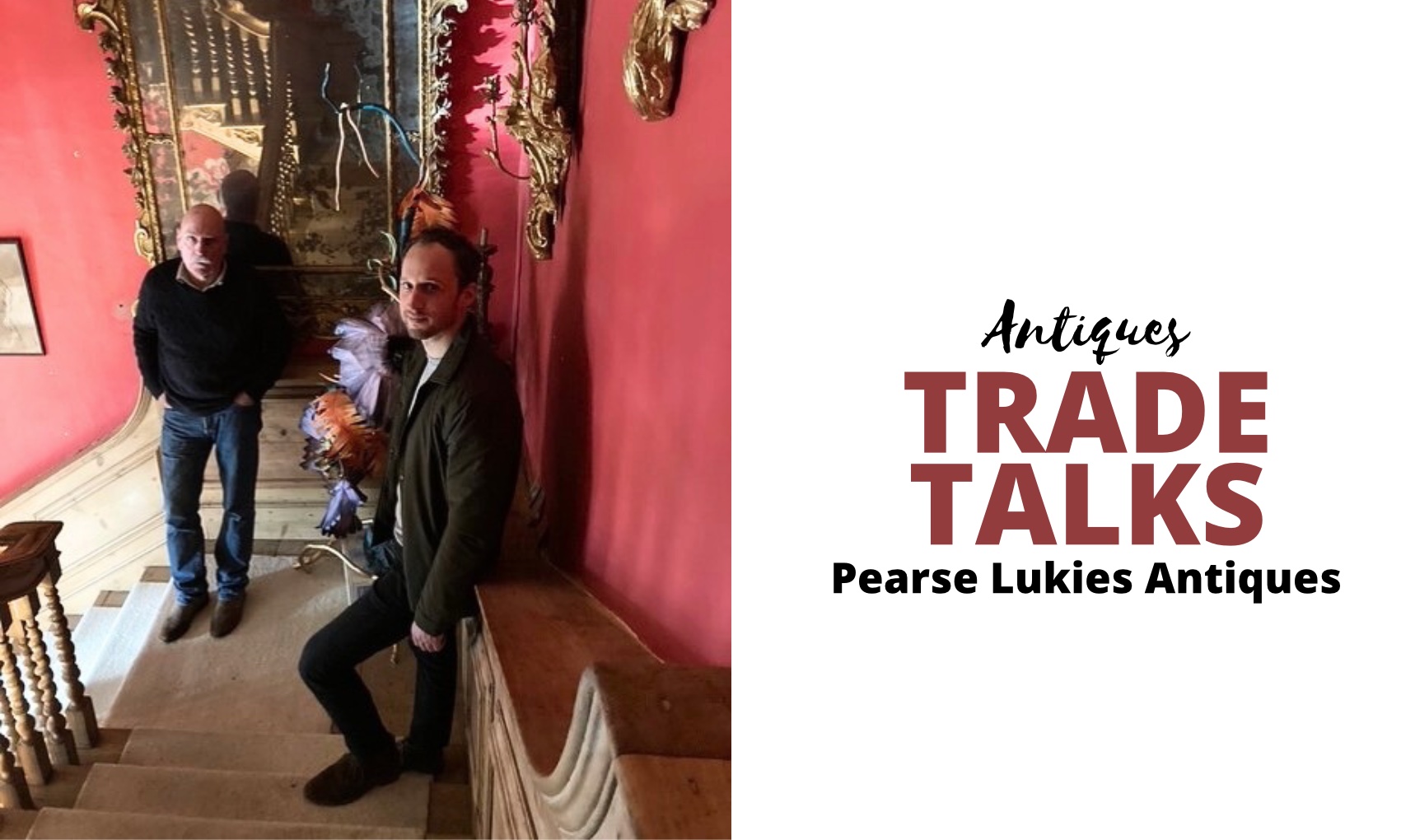#Antiques #Trade #Talks #Pearse #Lukies #Antiques #Antique #Collecting
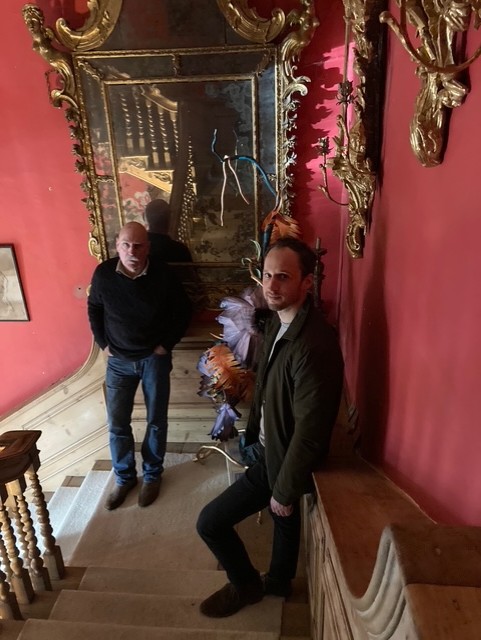
Pearse Lukies Antiques in Aylsham, Norfolk, was established in 1974 by Pearse Lukies, who was joined in the business by his son, Morgan, in 2011. The pair has a passion for medieval sculpture and fine European furniture and regularly embarks on sourcing and buying trips both across Europe and throughout the UK. Morgan takes time out from his busy schedule to share his thoughts on the antiques trade
What areas are currently selling well?
In the areas we deal in (i.e 16th-19th century English and Contintental furniture and works of art), as always, good examples in original condition sell well as do interesting, well-designed pieces. Generally speaking, there seems to be more of a focus on aesthetics rather than academic collecting and the ‘English country house aesthetic’ has enduring popularity, certainly in this country. Good, functional Georgian furniture with a dry surface will furnish a house beautifully and relatively inexpensively – if you’re patient, and keep your eyes peeled.
Which are the ones to watch/future sellers?
That’s the million dollar question. Hopefully all the things I like and deal in!
What antiques do you have at home/collect and why?
I grew up in a house full of antiques and am completely passionate about what I do, so I love to have antiques all around me as they just bring me so much joy. Personally, I have a soft spot for unusual Georgian oak or fruitwood furniture that looks like it should be formal and made of mahogany. I also love 18th-century oriental porcelain and Delft, so I collect these when I can (the more old staple repairs the better). Outside of these, just things that I find and love I live with; they don’t have to be valuable but just soulful I suppose.

What do you think will be the antiques of the future?
There are just so many wonderful pieces of art and furniture, etc, that have been made over the centuries, I hope these are the antiques of now and the future. Although I’m not very in the loop with modern furniture production, so much of what is produced now seems soulless or generic. There are still wonderfully skilled and original craftsmen around and I hope that what these people are producing also lasts and becomes part of the future of antiques dealing too.
How is the industry changing and are you optimistic for its future?
The industry has changed a lot in just my time in the business. There used to be a large network of dealers all across the country but the numbers have gone down hugely. Sadly, as a result there’s much less inter-dealer trading going. Auction houses have gained a lot of the market, and the public seems to rely on decorators more. The big change has obviously been the internet for good and bad, but it would require an essay to adequately cover the pros and cons! I’m optimistic that there will always be an industry as people will always want to surround themselves with beautiful things, but it certainly has become harder.
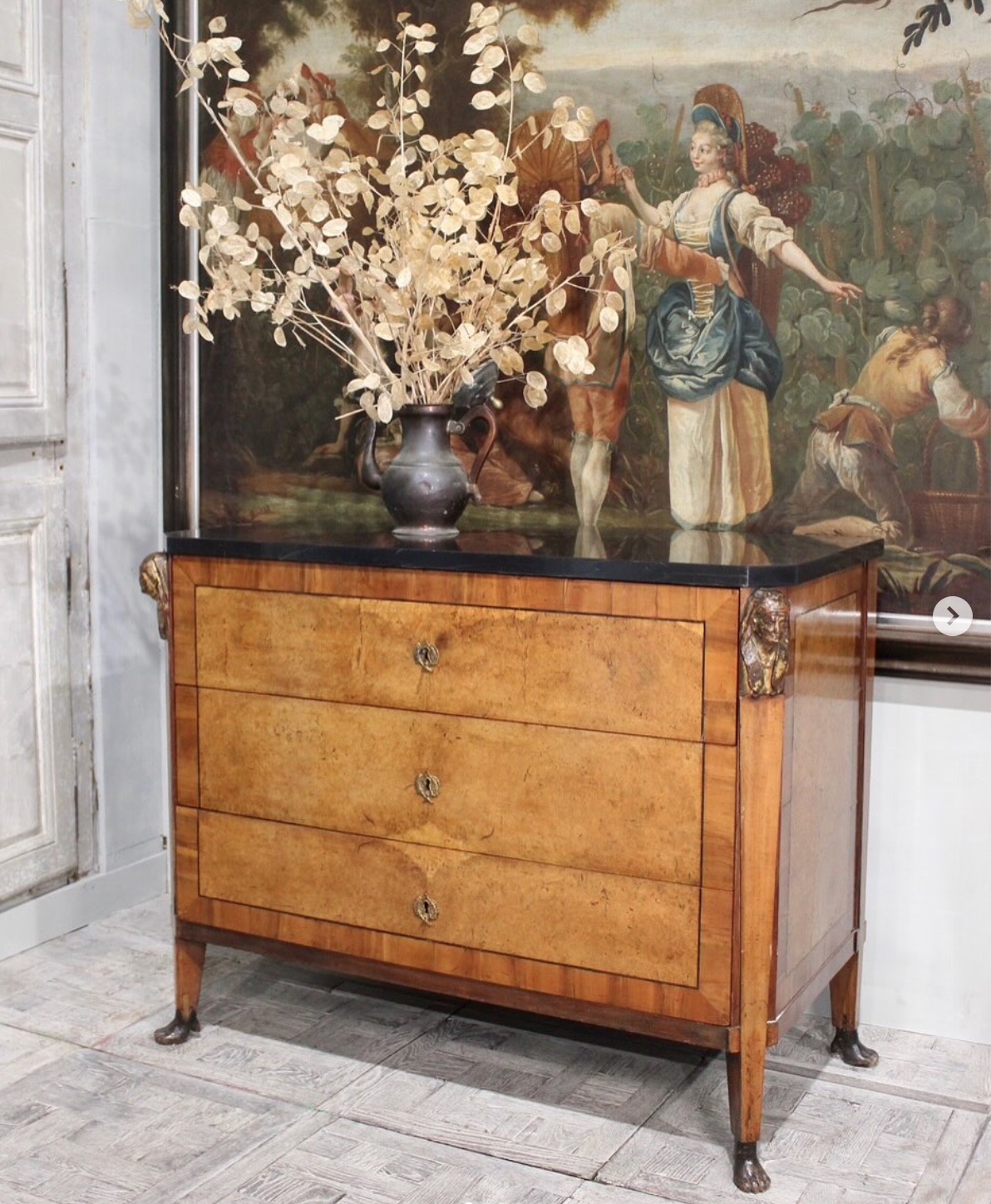
Is new technology good for the trade/collectors?
This is really at the heart of how the trade evolves. My opinions are primarily influenced by my own experiences, but I was brought up around brilliant, proper, old-fashioned antiques dealers and they were/are interesting, passionate, knowledgable individuals who all love what they do. The internet, to my mind, takes away that wonderful personal interaction and first-person experience that you need with antiques. To understand and fully enjoy a piece of furniture you really need to stand in front of it, handle it, talk to a dealer about it and find that excitement. The internet does open doors to meeting new customers, which is fantastic, but also takes away that personal experience that is so important. Auctions used to be covered by the local dealers and it fed the business, but now with auctions all online there are no secrets anymore…on the flip side, as a buyer it means I also have far more scope for finding great things this way. So really I’m unclear if it’s good or bad. The internet is here and technology is advancing, so it’s just a matter of going with the flow and embracing it and hoping it turns out to be good for the trade and collectors too.
Tell us some trade secrets?
Never! Ha ha!
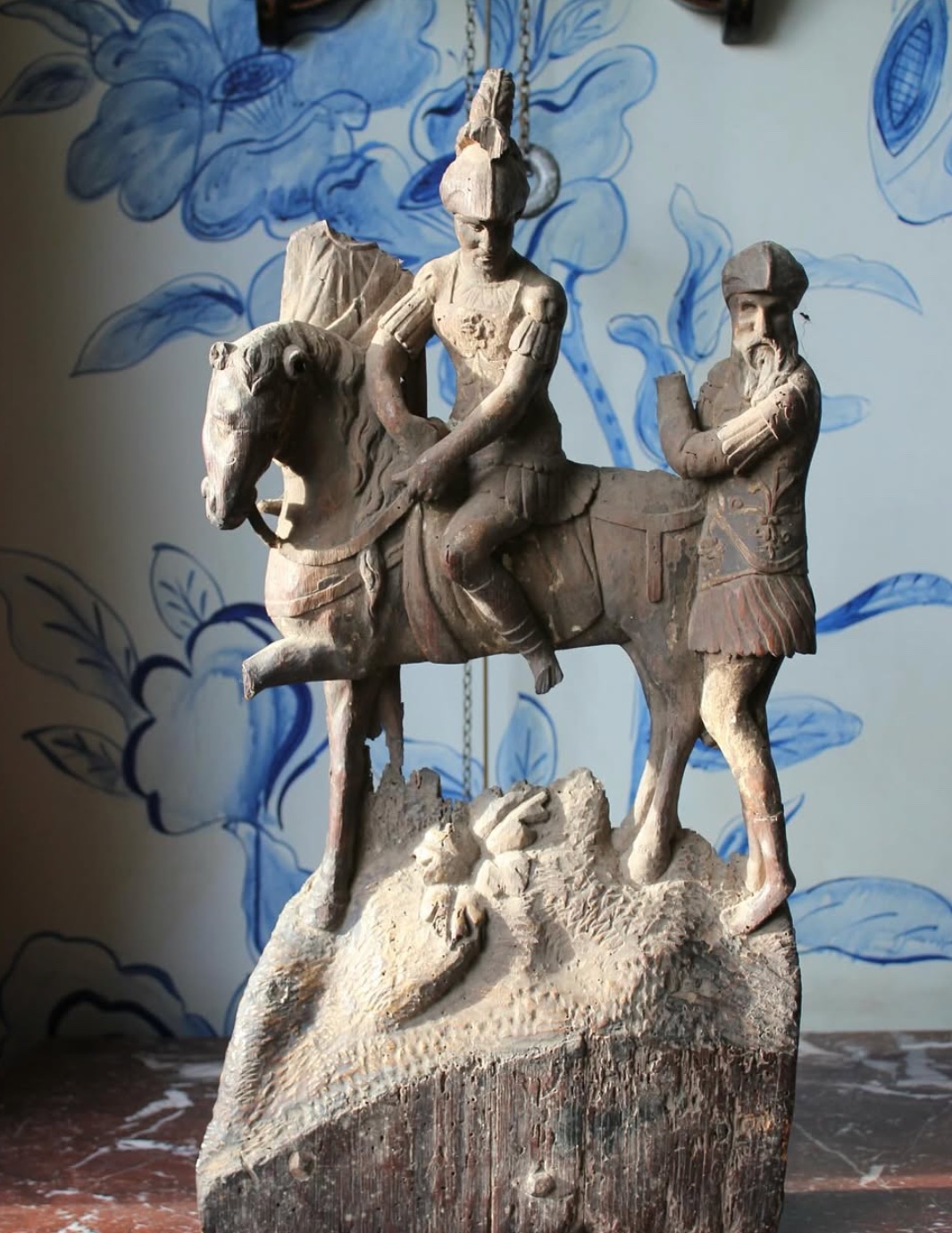
What antiques/objects would you buy if money were no object?
I think about this scenario a worrying amount, ha ha! We have a large collection of old auction catalogues going back to the 80s and I often flick through and picture what my unlimited-money-collection would look like. I’d basically buy the same things I buy now but the most exciting ones I can find without worrying about cost. But I’d fill warehouse after warehouse in this scenario so best it doesn’t happen.
You’re down to your last fifty quid…what antique would you buy?
Something that made me smile as I think I’d be pretty glum

What are your favourite antiques hunting destinations and why?
We go to all the big southern French markets/fairs, which we absolutely adore. The buzz when the fair opens at 8am and thousands of dealers rush in trying to find the treasures is just so exhilarating. We always stay in a nice town or city nearby and enjoy our evenings, too. We do regular buying trips to Holland and Belgium, too, both of which I love.
What are some of the biggest mistakes buyers make…what questions should they ask?
Buying from photos is generally tricky as photos don’t always paint an accurate picture. That’s why it’s so good to get to know dealers and build a relationship with them. Dealers have spent their whole careers putting their money where their mouth is, so find dealers who deal in things you like the look of and get to know them, meet them, see and handle their goods and share in the passion they undoubtedly feel for what they do. And don’t be afraid to express yourself with what you like. A home should be filled with things that make you happy so don’t be afraid to ignore trends and just follow your instincts; some of the most brilliant homes and collections have been built this way.
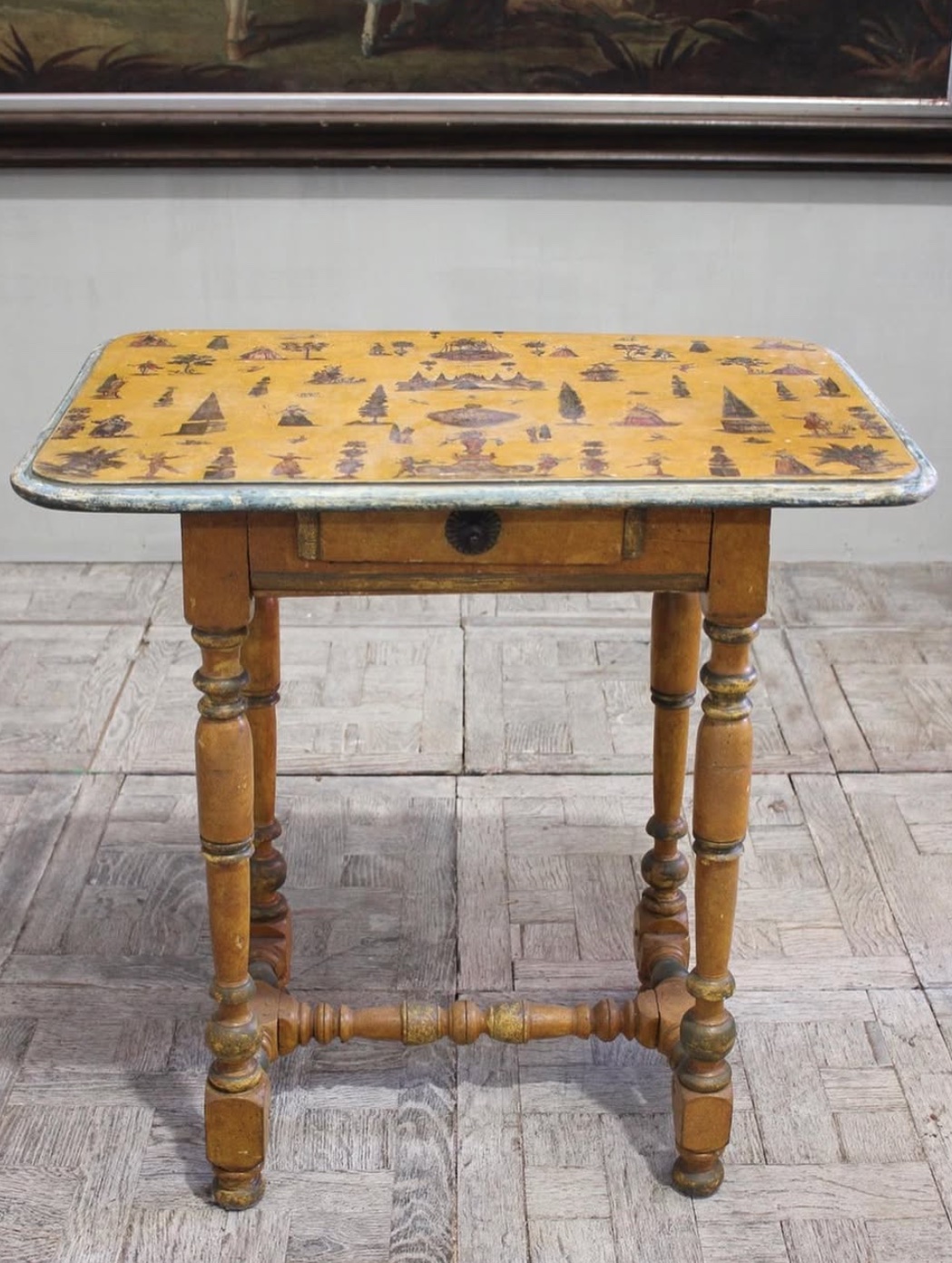
Any styling advice for using antiques in the home?
In my experience, a home containing carefully chosen pieces that the owners really take pleasure in always seems to be a really nice place to be and just works from an aesthetic point of view. That same eye tends to unite different pieces with a strand of taste that’s identifiable. If you’re new to collecting and styling I’d suggest looking at the works of some of the great decorators, finding ones that appeal and just look, read, learn and interpret. A good place to start for inspiration for those interested in incorporating antiques would be Axel Vervoordt and Robert Kime.
What do you consider the high point of your career in antiques?
I can’t think of one particular high point as there are so many in this job. It’s just a privilege to be doing what we do.
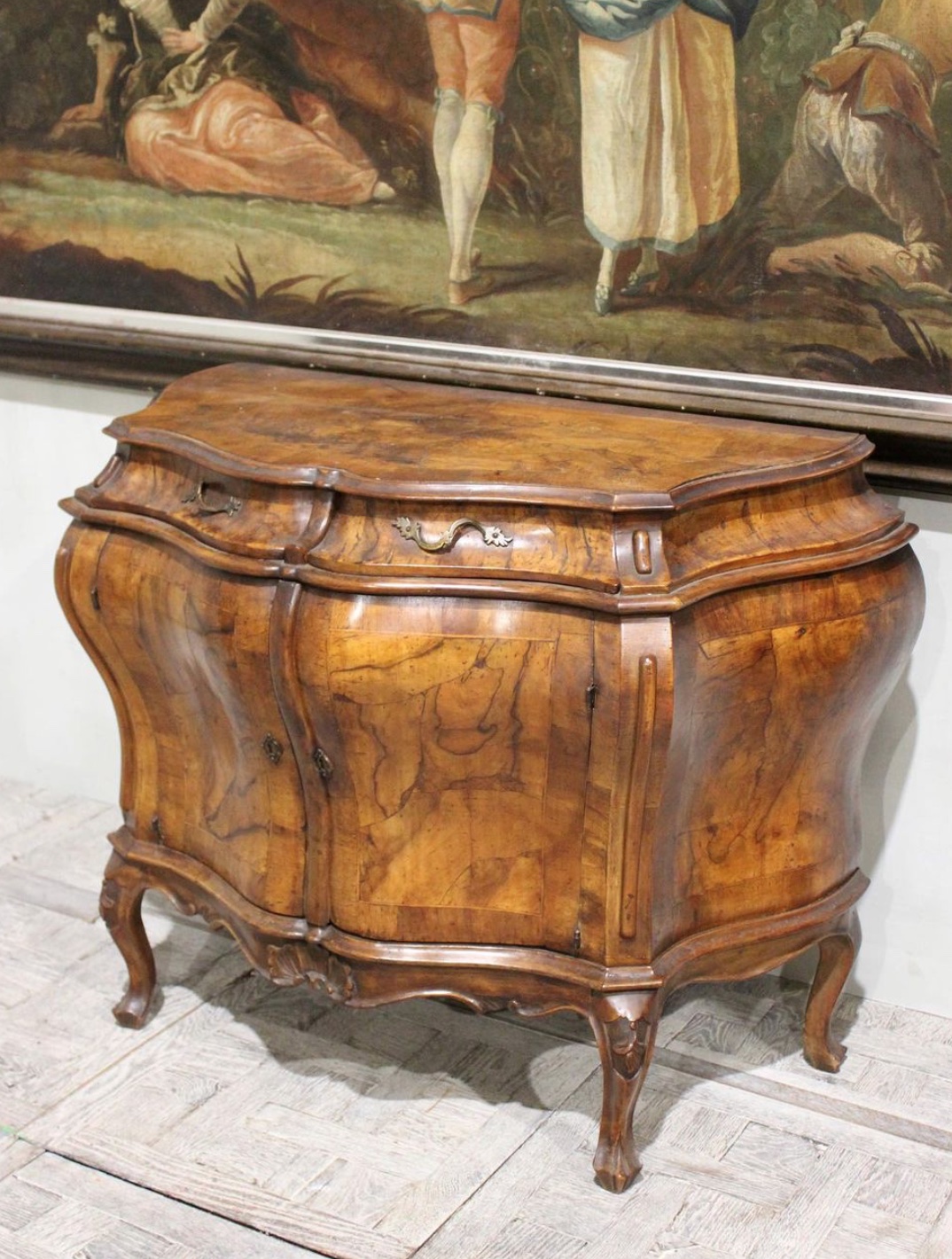
Are antiques attracting younger buyers and, if not, how can it?
Certainly, from what I can see, there are more young people interested and also dealing than ten years ago which is fantastic! A great result of the internet is that young people get to see amazing interiors with antiques in more readily and hopefully see that they aren’t to be shunned or feared for being ‘old fashioned’ but are actually beautiful, emotive and stylish things that they can live with and enjoy.
What advice would you give to people who are new to antiques who want to learn more?
Don’t be afraid or daunted. Don’t worry about having to learn or treat it academically, just enjoy the process. By looking at pictures in books, catalogues, shops and museums you’ll naturally develop a knowledge if you’re interested. Ask questions if you like, go to fairs and speak to dealers…we love people who are passionate and interested and will gladly chat and share what we know. If you would like to start collecting then buy what you like and can afford; the ticket price doesn’t make something nice or good, its the affect it has on the individual that makes an object.

